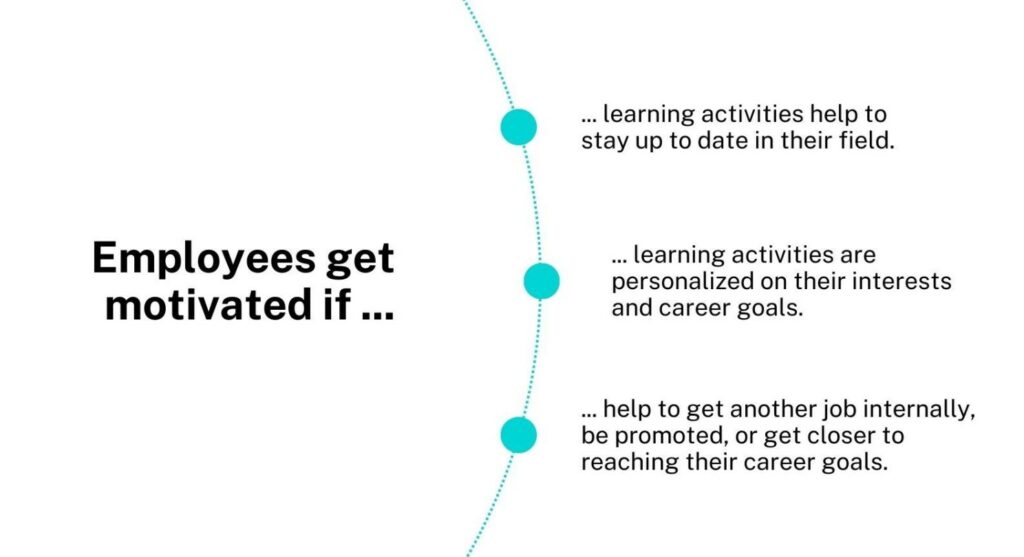Five employee priorities for sustainable companies:
#1 Opportunities for Learning and Development:
Integrate personalized learning pathways, ensuring employees have continuous opportunities for skill enhancement and professional growth.
#2 Sense of Belonging
Foster a supportive work environment that promotes a sense of belonging, encourages collaboration, and creates a community where employees feel valued.
#3 Alignment with Company Values
Incorporate organizational values into learning programs, reinforcing a sense of purpose and alignment with the company’s overarching mission.
#4 Focus on Quality of Life
Recognize the importance of work-life balance and well-being in corporate learning initiatives, allowing employees to prioritize both professional and personal development.
#5 Promotion of Collaboration
Develop learning experiences that encourage collaboration and teamwork, recognizing the significance of collective intelligence in achieving organizational goal.
The paradigm shift in HR priorities
The post-pandemic era isn’t just a chapter; it’s a spotlight on the critical importance of internal agility. Companies transitioning to competency-based planning seize a unique chance to foster a learning culture, align with trends like interdisciplinary learning, enhance recruitment, embrace personnel development, and ride the wave of the megatrend—promoting internal mobility.
Why a pivotal moment in organizational evolution is needed
- Skill alignment and job satisfaction:
Globally, employees who find that their skills are underutilized are 10 times more likely to seek new opportunities. * - Unstoppable shift in priorities: If we look at the factors that are most important to employees worldwide “Opportunities for training and development” has risen from ninth to first place in just two years.*
- Supporting instead of replacing: Almost 65% of HR developers in Europe agree that retraining employees is more cost-effective than hiring new employees.*
The popularity of learning initiatives brings challenges, a storm of overwhelming workloads in 2023. Increased demands year over year are the winds of change. To overcome this, companies must align learning with business skills, focusing on identifying gaps rather than mere completion rates.

In the theater of corporate learning, the spotlight is on you. Proactive measures are the script, addressing skill misalignment, investing in reskilling, and embracing internal mobility. Seize the opportunity now; it’s not just a chance—it’s a necessity for sustained success. Can you hear the applause of triumph in the evolving workplace learning landscape? Act now; the stage is yours!
*Source: Linkedin Learning, 2023, Workplace Learning Report





